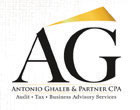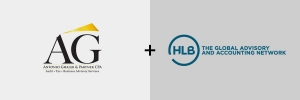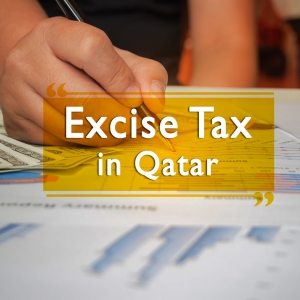
Antonio Ghaleb
Antonio Ghaleb is accredited in Qatar and holding the auditor’s registration number 348. Also he is a member of the following institutions: a) American Institution of Certified Public Accountant (AICPA), b) Guam Board of Accountancy, c) Certified in Risk Management Assurance “CRMA”, d) Chartered Global Management Accountant designation “CGMA”, and e) International Financial Reporting Standards (IFRS).
The novel COVID-19 is spreading and evolving rapidly, and accordingly, it has the potential to create significant changes for accountants, who prepare the financial statements and also for auditors as well. Auditors would face difficulties in reaching the supporting documents and evidence to support their opinion. I have attached a summary that highlights the negative impact on the financial statements due to this outbreak. The facts that we are going to discuss in the attached document are by no means exhaustive, and their applicability depends on each entity's facts and circumstances.
Click on the below link to read the full "Impact of COVID-19 outbreak on the financial statements"
Read MoreHLB international explores the effects of today's business issues by collecting the data of 10 questions that have been sent by HLB Global members to 368 business leaders, who are resident in different countries in the world and holding executive positions.
Knowing the business leaders' perspective in this profound uncertainty will help us to focus on the new business model, adapt to organizational change and modern advanced technology, and accordingly ensure business sustainability.
Click on the below link to read the full HLB's Inaugural Global Survey of business leaders.
We want to clarify a significant point regarding the withholding tax, which has been changed dramatically and you should adapt to this change to avoid any penalty and non-compliance with the General Tax Authorities rules and regulations.
In the previous ER, any service that was implemented abroad and was justified and supported with documents was not subject to the withholding tax. However, in the new ER, any service that is carried out partially or wholly abroad is subject to the withholding tax as long as you have an agreement with a Qatari company.
Let us take an easy example that clarifies this issue, which is the social media and web development, the foreign Service Provider can provide this service without being available in Qatar nor attending any meeting in Qatar; however, the Service Provider has an agreement with a Qatari company to provide this service. Hence, all amounts related to this agreement will be subject to the withholding tax 5% in which were not subject to the withholding tax in the previous ER. The same applies to any consultancy services such as designing, drawings, legal, accounting, business advisory services etc.
Further, any agreement that includes supply and apply must be split into two agreements to avoid any withholding tax issue.
I wanted to highlight this point because the words used, consumed, and exploited were unclear to all the people. This has been clarified after several meetings with the General Tax Authority.
P.S No one should act on such above information without appropriate professional advice after a thorough examination of the particular situation.
In brief:
On 11 December 2019, the Council of Ministers have published the Executive Regulations ("the New ERs") to the Income Tax Law No 24 of 2018 ("the New Tax Law") in the official Gazette. The previous ERs are now revoked and superseded by new ERs. The new ERs did not only provide clarifications on the executions of the New Tax Law in certain areas but did also specify new transfer pricing requirements, which were not introduced and pronounced in the previous regulations.
Main highlights and key changes:
Corporate Income Tax
- Changes the timeline for tax registration from 60 days to 30 days to register and obtain the Tax Card. Reference is also made to use the new digital Tax Administration System (TAS).
- Tax losses can be carried forward for a period of 5 years under the new ERs starting when such losses have been incurred, as compared to three years in the previous regulations.
- Additional guidelines on Permanent Establishments (PEs) where a construction project/site, installation, or supervisory activities last more than 6 months; and/or services including consultancy services (by employees or others) continue in Qatar for a period totaling 183 days in any 12 months period. This was applicable in the previous regulations, but they did introduce it in detail.
- Taxability of subsidiaries of companies listed on the Qatar stock market to the extent of non-Qatari shareholding in the listed parent company. Companies carrying out Petroleum Operations and operating in the Petrochemical industry will remain fully taxable, in case the State of Qatar wholly or partly owns the company, whether directly or indirectly.
- The new ERs entitle the taxpayers to deduct the depreciation according to the applicable accounting standards provided that such depreciation charge should not exceed the depreciation rates calculated based on the straight-line method specified under the new ERs.
- Detailed provisions and timelines have been introduced on conducting field inspections/tax audit and approach that the GTA will perform during tax returns assessment. The GTA should inform the taxpayer regarding its intention to undertake a field inspections/tax audit at least 15 days prior to the commencement of the field inspections/tax audit, and taxpayers must submit details requested by the GTA within 20 days from the date of request.
- Interests on loans and similar amounts paid by a taxpayer to related parties, as defined in the international accounting standards, shall be deducted within the limits of interests calculated on loans, which shall not exceed three times the taxpayer's equity recognized in his accounts during the accounting period provided that the loan generated economic benefits to the taxpayer, by virtue of an agreement between them specifying the loan term and purpose.
- Interests paid by a Permanent Establishment in the State to its head office or an entity related to such head office within or outside the State shall not be deducted.
Capital Gains Tax
Detailed guidance on the application of Capital Gains Tax on the sale of shares in Qatari resident companies by a non-resident corporate body.
Withholding Tax
The new ERs provide more clarity regarding the withholding tax's applicability along with the refund process.
- Government agencies, Ministries, public bodies and institutions, private foundations, private charitable foundations, and private foundations of public benefits are now required to register for WHT (as WHT agent), even if they are not subject to the provisions of the Tax Law. Companies subject to WHT may in future be required to request for WHT certificates from their Qatari entities stated above (in particular from Ministries and other Government bodies) in order to apply for refunds with the GTA.
- Changes to the rule on when WHT payment will be due and who will be subject to registration requirement as WHT agent. Amounts subject to WHT will now be deemed as paid within a maximum of 12 months' period from the payment due date (with the exception of Ministries and other Government agencies/public foundations). This is contrary to the previous practice where WHT was only due upon actual settlement. This implies that amounts subject to the withholding tax will be considered as paid and require submission to the GTA according to the regulations regardless of the actual settlement.
- The previous ERs, WHT applicability was based on the "Performance Test" (where the services were performed, wholly or partly rule). However, the new ERs indicate a broader and detailed scope for WHT applicability to include a "Consumption Test," i.e., services shall be considered as having been performed in the State as long as they are used, consumed or exploited in the State of Qatar even if they are carried out in whole or part outside the State.
- Administrative and general expenses paid to the head office to its permanent establishment as provided for in Article (7) of the ERs, shall not be subject to withholding tax.
- Detailed guidelines on the WHT refund process. This includes a list of supporting documentation and conditions that must be met in order to apply for a refund. Timelines for the WHT refund process have also been provided.
Transfer Pricing
- Transfer Pricing (TP) requirements for taxpayers have been introduced along with new reporting requirements applicable from the tax year ending 31 December 2019.
- Transactions between related parties were expected to be undertaken on an arm's length principle and in accordance with the Comparable Uncontrolled Price (CUP) method or any other Organization for Economic Co-operation and Development (OECD) acceptable pricing method. However, there was no specific requirement for filing TP documentation with the General Tax Authority (GTA). The new ERs have outlined specific transfer pricing requirements.
- Reaffirmation of the arm's length principle between the related parties' transactions, as described in the International Accounting Standards.
- Treating all related parties' transactions on arm's length basis as if you are dealing with any independent entity in which difference quotations and procedures have be to followed to ensure that arm's length principle is applicable.
- Performing a "Functional Analysis" of the related parties transactions disclosed in the tax return and financial statements and describing a taxpayer's economic role with the related entities, identifying the functions performed, risks assumed, and the tangible and intangible assets owned and used.
- Updating the financial data of comparable related parties' transactions between an independent entity or between two independent entities every year. Each related entity shall perform a new search for comparable transactions in financial databases every three (3) years, if and to the extent that the activity's circumstances remain unchanged.
- A new requirement of a transfer pricing declaration as part of the annual income tax return, of which the GTA should specify the form and content. The declaration will be provided to the extent that the amount of turnover is equal or exceed the threshold specified by the GTA.
- The Transfer Pricing requirements include four tiers of compliance: (i) Transfer Pricing Form/Questionnaire to be provided with the Tax Return, (ii) Masterfile, (iii) Local file and (iv) Country by Country Reporting requirements (already introduced in 2018/2019).
- Using the Comparable Uncontrolled Price (CUP) methodology as a primary methodology. However, if the CUP method is not applicable, the taxpayer should lodge a request to the GTA for the application of a different transfer pricing methodology.
- Preparing TP documentation (Local File and Master File) by the time of filing the tax return for the period of occurrence of the respective related party transaction(s) or at any other date that the GTA may specify otherwise.
- The Local File and Master File shall be established according to the OECD Guidelines. The GTA did not establish a specific format/template for this purpose and to the extent that the following conditions are met: - The threshold (to be established by the GTA) on total revenues or total assets of the taxpayer is met;
- One of the related parties of the Qatari taxpayer is established outside the State of Qatar. - GTA will rely and use the Master and Local file to ensure that the related parties' transactions have occurred based on arm's length transaction.
- GTA will request the entity to provide any necessary documents to support the subject matter. The deadline for the taxpayer to provide such information upon request from the GTA shall not exceed 30 days from the date of the GTA's request.
- GTA will no longer accept the absence of a Local file / Master File, based on the argument that other companies of the group are responsible for establishing and documenting the arm's length principle. Also, the absence of adjustment to the intercompany prices in case such prices are not established to be arm's length.
What remains unclear:
Certain areas of the Regulations still remain unclear. Amongst others, the key uncertain items are:
- Exemptions in certain scenarios applicable to legal entities partly owned by Qatari nationals.
- Practical challenges related to the calculation of the share of profits attributable to non-Qatari shareholders in subsidiaries of listed entities.
- Group basis depreciation will continue to apply.
Read More
Global accounting and advisory network HLB has admitted a new member firm in Qatar: Antonio Ghaleb & Partner CPA.
Adding to its extensive coverage right across the Middle East, global accounting and advisory network HLB has appointed Antonio Ghaleb & Partner CPA of Qatar as its latest member firm. Operating out of Lusail City north of Doha, Antonio Ghaleb & Partner was established in 2017 and provides audit & assurance, business advisory, tax, corporate governance, and HR services among its offerings.
“The strategy for joining HLB was not only to grow our business in the marketplace, but to align with a network that shares our core values and where we can offer our expertise. We believe that through persistence and determination we will grow and reach new milestones. The journey has started with HLB, as together we can make anything happen.” said founder and Managing Partner Antonio Ghaleb.
Earning an MBA in auditing in 2012, Ghaleb prior to establishing the business spent six years as an audit and risk manager with Mazars, before which he served for two years as a senior auditor with Jeffreys Henrys (Assad Haddad & Partners) in Beirut. “Antonio Ghaleb & Partner CPA will make a great addition to our global coverage and will be a great addition to our Middle East network,” HLB stated.
The addition of Antonio Ghaleb & Partner CPA – HLB’s sole current member firm in Qatar – comes on the back of the network this month celebrating its 50th anniversary. Formed in 1969 (as Hodgson Landau Brands, based on the names of former early members), HLB International, as it was rebranded in 1990, has since expanded its footprint to almost 750 offices in more than 150 countries worldwide.
With collective revenues now exceeding $2.7 billion – growing by over 60 percent since 2013 and on track to eclipse its target of $3 billion by 2020 – HLB is the world’s 12th largest network of its kind, chasing the likes of Baker Tilly and Nexia on the mid-tier table. To underscore its growth, last year the firm unveiled fresh corporate branding, including a new logo, tagline, website and overall look.
“We live in a time where everyone – our clients, our people and our members – are always online, said HLB CEO Marco Donzelli at the time. “This new brand represents our identity, our values and our aims, and allows us to communicate more naturally in the digital space… I look forward to seeing the new brand adopted across the network as we prepare for our 50th anniversary next year.”
Celebrating that milestone on the 7th of June, the network held its first ever global Corporate Social Responsibility initiative, #HLBCommunities Day, with 1,320 participants contributing nearly 8,500 volunteer hours to 42 community projects worldwide, including volunteering with the elderly and at food banks, supporting after school programmes, and helping with outdoor public maintenance.

Dr. Antonio Ghaleb
Managing Partner,
AG & Partner CPA
irglobal.com/advisor/dr-antonio-ghaleb
Dr. Antonio Ghaleb has more than 15 years of extensive audit, accounting, tax finance, management, and risk management experience gained from the leading audit and tax consultancy firms in the world. He earned a doctorate in Business Administration (DBA) from a reputable and accredited university in the USA. He is a member of the American Institution of Certified Public Accountant (AICPA) and the Guam Board of Accountancy. He is also certified in Risk Management Assurance (CRMA) and is a Chartered Global Management Accountant (CGMA).
He established his Qatar-accredited audit firm, in 2017 and is specialised in audit, tax, and business advisory services.
+974 4497 9530
antonioghaleb.com
# QUESTION ONE
What are the most common structures used when international clients want to form a company in your jurisdiction? Any examples?
The legal structures according to the Qatari Commercial Law are the following:
- Joint Liability Company
- Limited Partnership
- Joint Venture Company
- Public Shareholding Company
- Private Shareholding Company
- Partnership Limited by Shares
- Limited Liability Company
# QUESTION TWO
The most common legal structures that foreign entities or natural persons may establish in Qatar, are the Limited Liability Company and a branch of a foreign entity. The process of establishing a branch is subject to the new investment law 1/2019, in which a foreign entity (legal person) may own the branch, whereas a foreign natural person can only own up to 49 per cent of the capital of a Limited Liability Company.
Please detail some of the favourable and unfavourable legislation that businesses considering establishing a presence in your jurisdiction should be aware of? How can you help them to streamline the process?
Qatar has proved its strong economy, by continuing its business activities independently, maintaining one of the highest GDP growth rates in the region, and also maintaining its title as one of the countries with the highest GDP per capita in the world.
We have to differentiate between international entities that come to Qatar to carry out activities connected to government or semi-government projects. These companies can set up a 100 per cent branch owned by their parent companies, which are located and registered abroad, by getting special approval from the Ministry of Economy and Industry in Qatar.
The advantage of setting up a branch 100 per cent owned by a foreign entity, is to ensure that the foreign entity controls the management entirely and has a significant influence in any decision during the board meeting. Hence, the foreign entity controls the management in Qatar and can take any decision at its sole discretion in any investment or organisational change, without getting back to any local partner. However, the disadvantage of doing this, is the corporate tax in which the General and Tax Authority (GTA) levies the tax on the profit the branch generates in Qatar on the basis of 10 per cent from the net profit. The foreign entity can appoint a manager or director to manage the branch, and the director will assume any responsibility in the event of any gross negligence. The director will run the daily business and he/she will have a full authority to sign any document in any private or public entity.
There are also certain benefits investors can get from the government, to invest in Qatar and obtain a share of more than 49 per cent. This process will be clarified in details in the Executive Regulation, which is not yet issued. However, foreign investors cannot invest in banks, insurance companies, commercial agencies, or any sector not approved by the Ministry of Economy and Industry.
Foreign entities, which come to Qatar to establish a limited liability company, are obliged to share a percentage that is not more than 49 per cent of the capital amount. They can increase their profit share up to 97 per cent in the Articles of Association (AOA). The advantage of increasing the profit share to 97 per cent, is to ensure a significant control in any managerial decision, and accordingly, the role of the local partner will be merely passive and has a protective right to sign and not a substantive right.
These foreign entities establish limited liability companies, because they do not have a project with the government or semi-government and therefore the requirements of setting up a branch are not met. If the company generates income, then the General and Tax Authority (GTA) levies the tax on the profit share stated in the AOA. the local partner is entitled to the profit stated in the AOA and will assume the same loss in case the company incurs losses.
Every company, regardless of its legal structure (branch, LLC, partnership), is required to register at the General Tax Authority and obtain a Tax Card. There is a new income tax law 24/2018, which has been published officially in the official gazette in December 2018. The GTA has changed substantially the articles related to the delay penalties, and other requirements that follow the preparation process of file the tax return. Although the companies can apply the International Financial Reporting Standards (IFRS), however, some adjustments require the companies to adjust in the tax return. All companies should meet the deadline of submitting the tax return and audited financial statements according to the Income Tax Law, and any violation of the rules will impose a significant amount of penalties. Further, the GTA has substantiated in the income tax law on the transparency and objectivity of the daily transactions and the process of submitting the tax return; any process that leads to tax evasion imposes the taxpayer to significant penalties and imprisonment.
# QUESTION THREE
What due diligence is required to be undertaken by company formations agents under anti-money laundering laws in your jurisdiction?
Law No 4 of 2010 Promulgating the Law of Combating Money Laundering and Terrorism Financing obliges reporting entities such as financial institutions, independent legal professionals such as auditors, lawyers to report any suspicious transaction they may detect during their review of any business transaction. Further, the central bank is conducting regular ongoing off-site surveillance and on-site inspection of all financial institutions regulated and controlled by the Qatar Central Bank to ensure that all financial institutions comply with the AML/CFT legal requirements. Auditors should report to the financial information unit any suspicious transaction detected during audit, in which this process is in alignment with the International Auditing and Assurance Standards Board (IAASB) and International Code of Ethics for Professional Accountants by International Ethics Standards Board (IESBA).
On the 9th of September 2018, Qatar published new country-by-country reporting (CbCR) requirements in the Official Gazette. Qatar Tax resident firms, which are members of multinational groups that have annual consolidated revenues that exceed QAR 3 billion (approximately USD822 million), are required to comply with the CbCR report filing requirements in Qatar for fiscal years commencing on or after 1 January 2017.

AG & partner CPA was founded and registered by the Ministry of Economy and Commerce in Qatar under Commercial Registration number 103317.
The firm is specialised in auditing, accounting, tax, and business advisory services; which include financial consultancy services, budgeting, forecasting, and planning, internal audits, due diligence assignments, business restructuring, accounting systems and accounting treatment of the complex transactions.
Additionally, the firm assists in company establishment, credit facility reviews and liquidation services. All work complies with the International Standards of Auditing (ISA), code of ethics and objectivity, and International Financial Reporting Standards (IFRS).
The practice works firmly with clients to help them optimise tax legally, in compliance with current rules and regulations.
Doing business in Qatar
Foreign investors can transfer dividends to their home country without paying any tax. There is no restriction nor threshold to the amount that will be transferred from Qatar to any other country.
All expatriates’ salaries are exempted from any individual tax in which this gives investors another incentive to consider Qatar as an investment destination.
Qatar has no sales tax or value-added tax, which attracts foreign investors to build up manufacturing or trading capacities for local market consumption or exportation with minimal taxation. The government is encouraging potential investors to build up factories that add value to the economy. Dependent on conditions and government requirements, such as feasibility studies and other capital requirements, the same factories will get an exemption from the government to pay corporate tax, and customs duty.
The government has also started a new vehicle, which is a free zone area. Qatar Economic Zone (QEZ), enables potential investors to establish foreign entities owned 100 per cent by foreign investors.
Company Formations: A jurisdiction guide to setting up a business
The law number 25 of the year 2018 stipulates in details the Excise Tax and the taxable persons or firms, who must register and file the tax return along with the penalties and tax assessment. Excise Tax is a new law, which came into force by the 1st of January 2019 oblige any taxable person or firm to file a quarterly tax return each 15 day that follows the taxable quarter. Excise Tax is a single-phased tax, levied once at import or at production stage within the state of Qatar.
The final consumers bear the excise tax; however, the tax is levied earlier throughout the supply chain business by the importers, manufacturers or tax warehouse keepers, which are required to register to submit periodical returns, pay the Excise Tax due to the General Tax Authority and maintain Excise Tax-specific records. There are certain conditions in which the chairman of General Tax Authority may exempt the importers from the excise tax, but this process is entirely related to his or her discretion.
Goods subject to Excise Tax in the State of Qatar and the applicable tax rates are as follows:
- Tobacco and tobacco derivatives – 100%;
- Carbonated drinks – 50%;
- Energy drinks – 100%;
- Special purpose goods– 100%.
Excise Tax is calculated as a percentage of the Excise Tax value of the goods. The Excise Tax value of the goods (i.e. the ‘tax base’) shall be the higher of:
- The standard price as listed in a Ministerial Decision, or a minimum value as listed in a schedule issued by the GTA on its website; or
- The retail sales price (RSP) declared by the producer or importer or warehouse keeper of such Excise goods after deducting any Excise Tax amount included in that price.
In order to deduct the Excise Tax included in the retail sales price (if any), the following should be applied:
- For Excise goods subject to 50% - multiply the RSP by 66.67%;
- For Excise goods subject to 100% - multiply the RSP by 50%.
To read more about the guide of Excise Tax; you can check the following link
http://www.customs.gov.qa/eng/EX_Tax.phpConsolidated financial statements as per IFRS 10; how to assess control between an investor and investee and when the investee is considered a subsidiary?
Consolidated financial statement is a hot topic for the companies that own subsidiaries. Assessing the level of control entity A has over entity B enables us to decide whether entity B is a subsidiary or merely associate under IAS 28, financial instrument under IAS 39 or IFRS 9, joint arrangement under IFRS 11, or by other applicable IFRSs.
Control is not based solely on legal ownership or legal structure. IFRS 10 explains that,
an investor controls an investee when it is exposed, or has rights, to variable returns from its involvement with the investee and has the ability to affect those returns through its power over the investee.
Antonio Ghaleb & Partner CPA provides bookkeeping and accounting services to the companies. Most of the companies are looking nowadays to reduce the overhead expenses and use this process as a new strategy to sustain in business and ensure profitability. Our audit firm is reputable, and its team has enough and sufficient experience to meet the client expectation. Our reputable audit firm arranges with the relevant companies to receive all the transactions, and relevant supporting documents and does the bookkeeping as per the International Financial Reporting Standards (IFRS).
We offer accounting and bookkeeping services in Doha and across Qatar to maintain quality accounting and financial records. We take pride in being one of the leading accounting firms in Qatar, and our accountants provide standardized accounting and bookkeeping services in Doha, Qatar which allows the business to run efficiently and effectively. We follow the International Financial Reporting Standard (IFRS) to provide well-maintained accounting and bookkeeping services and accounting solutions to ensure higher sales and growth of the company. Our Accounting and Bookkeeping service helps companies maintain their set of books in complete order, compliant with local laws and reconciled with various statements. This is the minimal requirement for any company, whether it is a startup or a multi-national entity. Our bookkeeper will handle day-to-day data entry through regular visits or remotely, as the case may be.
Financial statements users rely on the auditor’s report to take an economic decision. Therefore, our reputable audit firm ensures that our external audit is being performed by the International Auditing Standards (ISA) guide. The purpose of the ISA guide is to provide practical guidance to practitioners conducting audit engagements for small- and medium-sized entities (SMEs). An internal audit plays a vital role in the companies to ensure that the internal control system is effective and report weaknesses to the top management. Internal auditing plays a significant role in protecting the company, and the management helps and guides the employees to apply the internal policies and procedures effectively.











